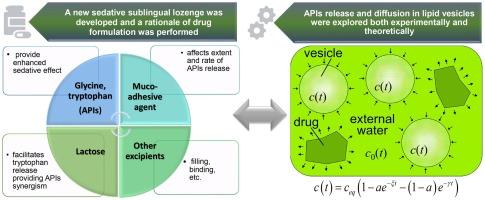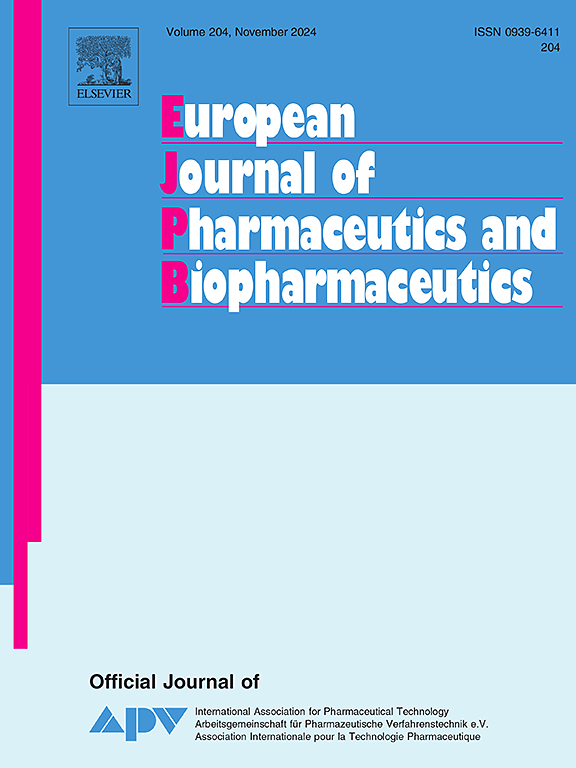Biopharmaceutical studies of a novel sedative sublingual lozenge based on glycine and tryptophan: A rationale for mucoadhesive agent selection
Abstract
Effective sedative drugs are in great demand due to increasing incidence of nervous disorders. The present work was aimed to develop a novel sublingual sedative drug based on glycine and L-tryptophan amino acids. Carbopol and different hydroxypropyl methylcellulose species were alternatively tested as mucoadhesive agents intended to prolong tryptophan sublingual release time. A model lipid medium of fully hydrated L-α-dimyristoylphosphatidylcholine was used for optimal mucoadhesive agents selection. Simultaneous processes of drug release and diffusion in lipid medium were first investigated involving both experimental and theoretical approaches. Individual substances, their selected combinations as well as different drug formulations were consecutively examined. Application of kinetic differential scanning calorimetry method allowed us to reveal a number of specific drug-excipient effects. Lactose was found to essentially facilitate tryptophan release and provide its ability to get into the bloodstream simultaneously with glycine, which is necessary to achieve glycine-tryptophan synergism. Introduction of a mucoadhesive agent into the formulation was shown to change kinetics of drug-membrane interactions variously depending on viscosity grade. Among the mucoadhesive agents, hydroxypropyl methylcellulose species K4M and E4M were shown to further accelerate drug release, therefore they were selected as optimal. Thus, effectiveness of the novel sedative drug was provided by including some excipients, such as lactose and the selected mucoadhesive agent species. A dynamic mathematical model was developed properly describing release and diffusion in lipid medium of various drug substances. Our study clearly showed applicability of a lipid medium to meet challenges such as drug-excipient interactions and optimization of drug formulations.


 求助内容:
求助内容: 应助结果提醒方式:
应助结果提醒方式:


